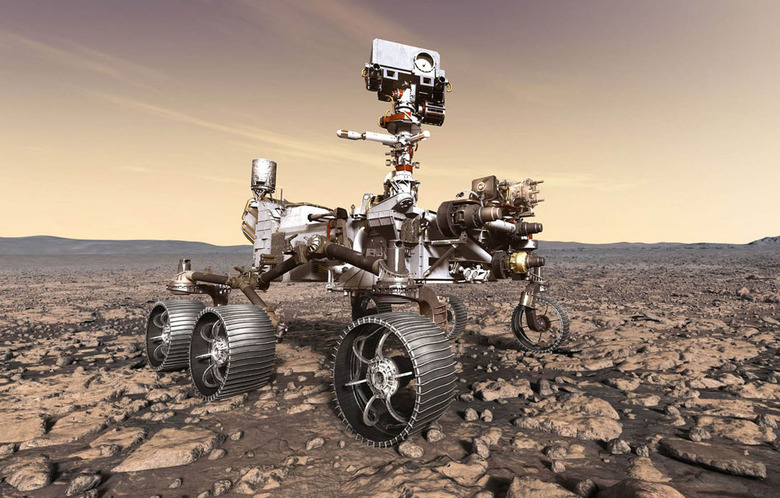NASA's New Mars Rover Is Hearing Vibrations In Space
- NASA recorded audio from its Perseverance rover that is currently headed to Mars.
- The audio is largely vibrations traveling through the rover's body and being picked up by the microphone.
- Perseverance is slated to arrive on Mars in February 2021.
NASA's Perseverance rover is on its way to the Red Planet as we speak. It's less than 100 days out from its destination, and you can imagine the excitement of scientists that have been working on the project for almost a decade to finally see some of the fruits of their labor. Science fans are excited too, and if you're one of them, NASA has a treat for you.
To help hold us over until the big day arrives, NASA is offering us a small glimpse into what the rover is currently experiencing. More specifically, NASA just released an audio track of the sounds being picked up by the Perseverance Rover's built-in microphone.
Today's Best Deal
So, before we get into the space "music," it's important to remember that there's no air in space. As such, "hearing" things doesn't work the way it does on Earth (or other places with atmospheres). In fact, it doesn't really work at all. Sounds are vibrations carried through the air, but the microphone on the Perseverance rover is capable of picking up vibrations flowing through its body.
NASA explains:
As any fan of cinematic sci-fi knows, the vacuum of space is a less-than-optimal environment for auditory transmissions. But that doesn't mean sound can't find another way. Sound waves can travel through solid objects. When these mechanical vibrations are registered by an electrical component, they sometimes are turned into an electrical signal. (Anyone listening to music through in-ear headphones may have encountered this phenomenon as a rustling or thumping noise when the headphone cord brushes up against a surface.)
Now, let's take a listen:
Okay, so there's not a whole lot to hear. However, the fact that the microphone appears to be working as intended is great news for scientists that are eager to hear what a landing on Mars may sound like. The science team isn't counting on being able to hear the descent and touchdown, but it would be an incredible bonus.
"As great as it is to pick up a little audio on spacecraft operations in-flight, the sound file has a more important meaning," NASA's David Gruel said in a statement. "It means that our system is working and ready to try to record some of the sound and fury of a Mars landing. Getting sound from landing is a nice-to-have, not a need-to-have. If it doesn't happen, it will not impede the rover's mission of discovery at Jezero Crater one bit. If even a portion of the landing sequence is captured on audio, that would be awesome."
